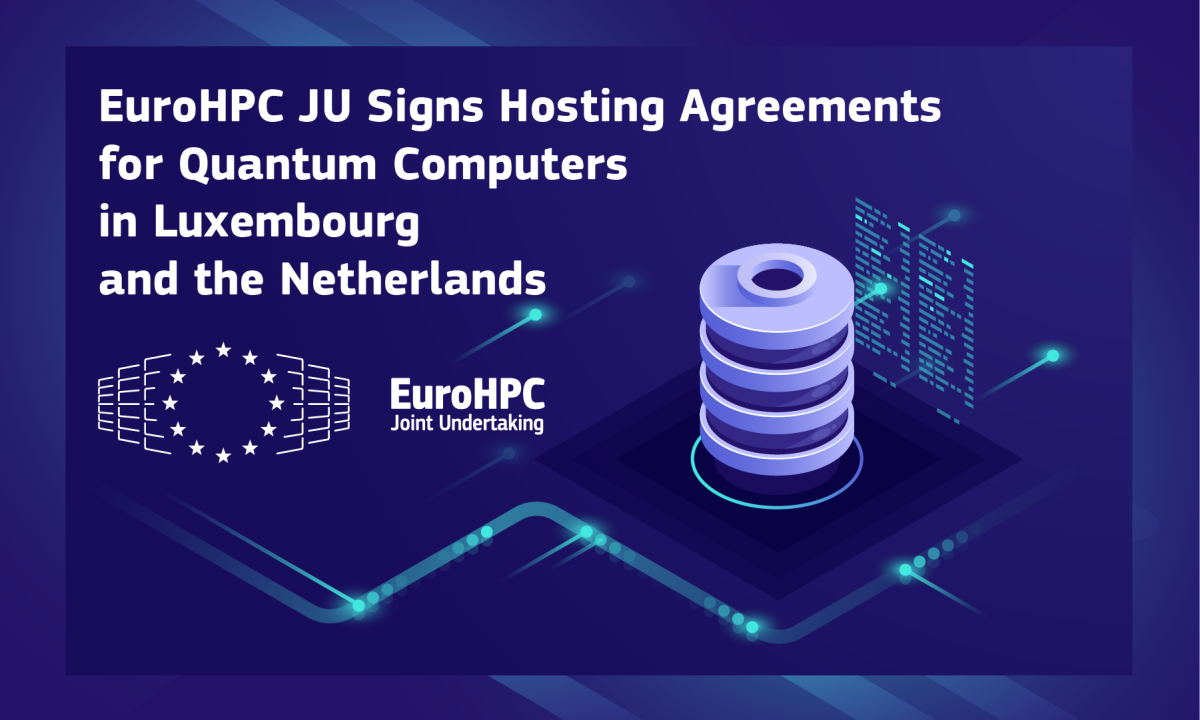The two new EuroHPC quantum computers will leverage quantum computing technologies based on semiconductor spin qubits. They will provide European end-users access to two new complementary qubit modalities while relying on well-established European manufacturing knowledge and processes.
Both quantum computers will be integrated with existing supercomputers as part of EuroHPC JU strategy to offer the widest possible variety of different European quantum computing technologies and hybrid classical-quantum architectures. By procuring this technology, EuroHPC JU will contribute further towards securing a scalable and diverse supply chain of quantum computers within the European Union.
These EuroHPC quantum computers will support research and innovation and will be available to a wide range of European end-users, spanning from the scientific community to industry and the public sector. It will drive innovation across Europe while positioning our continent as a frontrunner on this cutting-edge technology.
MeluXina-Q
The system “MeluXina-Q” will be hosted and operated by LuxProvide in Luxembourg and integrated into the EuroHPC supercomputer MeluXina.
MeluXina-Q will initially be equipped with a 10-qubit quantum processing unit (QPU) based on semiconductor spin qubits. Over the lifetime of the system, upgrades are foreseen to reach a total of 80 physical qubits, distributed among four different QPUs.
More details on MeluXina-Q can be found in this press release announcing the selection of LuxProvide in October 2024.
EuroHPC Quantum Computer in the Netherlands
The system will be hosted and operated by SURF in coordination with QuantumDelta NL. The system will be located at the Amsterdam Science Park and integrated into the Dutch national supercomputer, Snellius.
This new quantum system will be based on semiconductor spin qubits and, in its initial phase, will offer a minimum of 16 physical qubits.
More details on this EuroHPC quantum computer can be found in this press release announcing the selection of SURF in October 2024.
More details
The hosting agreements, which have now been signed, are contractual documents that define the roles, rights and obligations of each party. The procurement process for the quantum computers will be managed by EuroHPC JU and will begin early next year.
Supercomputers with quantum computing acceleration can solve specific complex tasks in seconds, tasks that traditional supercomputers struggle to compute. They are particularly powerful for problems that involve complex mathematical calculations or optimisation challenges such as improving traffic flows in smart cities or simulating molecular structures, critical for the development of new drugs and materials. Other potential applications include accelerating climate modelling to predict weather patterns more accurately, and enhancing cryptographic algorithms for better cybersecurity.
The quantum computers will be co-funded by the EuroHPC JU budget stemming from the Digital Europe Programme (DEP) and by contributions from the relevant EuroHPC JU participating states. The JU will co-fund up to 50% of the total cost of the quantum computers.
LuxProvide and SURF have been selected as a result of a call for expression of interest for the hosting and operation of European quantum computers integrated in HPC supercomputer, launched in December 2023.
Background
The EuroHPC Joint Undertaking (EuroHPC JU) is a legal and funding entity created in 2018 to enable the European Union and EuroHPC JU participating countries to coordinate their efforts and pool their resources with the objective of making Europe a world leader in supercomputing.
In order to equip Europe with a world-leading supercomputing infrastructure, the EuroHPC JU has already procured nine supercomputers, located across Europe. No matter where in Europe they are located, European scientists and users from the public sector and industry can benefit from these EuroHPC supercomputers via the EuroHPC Access Calls to advance science and support the development of a wide range of applications with industrial, scientific and societal relevance for Europe.
As part of its objective to offer access to the widest possible variety of European quantum computing platforms and hybrid classical-quantum architectures, the EuroHPC JU has recently procured four quantum computers currently being deployed in Poland, Czechia, France, and Germany. More quantum computers will be deployed in a near future in Spain and Italy but also Luxembourg and the Netherlands, introducing cutting-edge quantum technologies not yet available in any other EuroHPC quantum computers.
